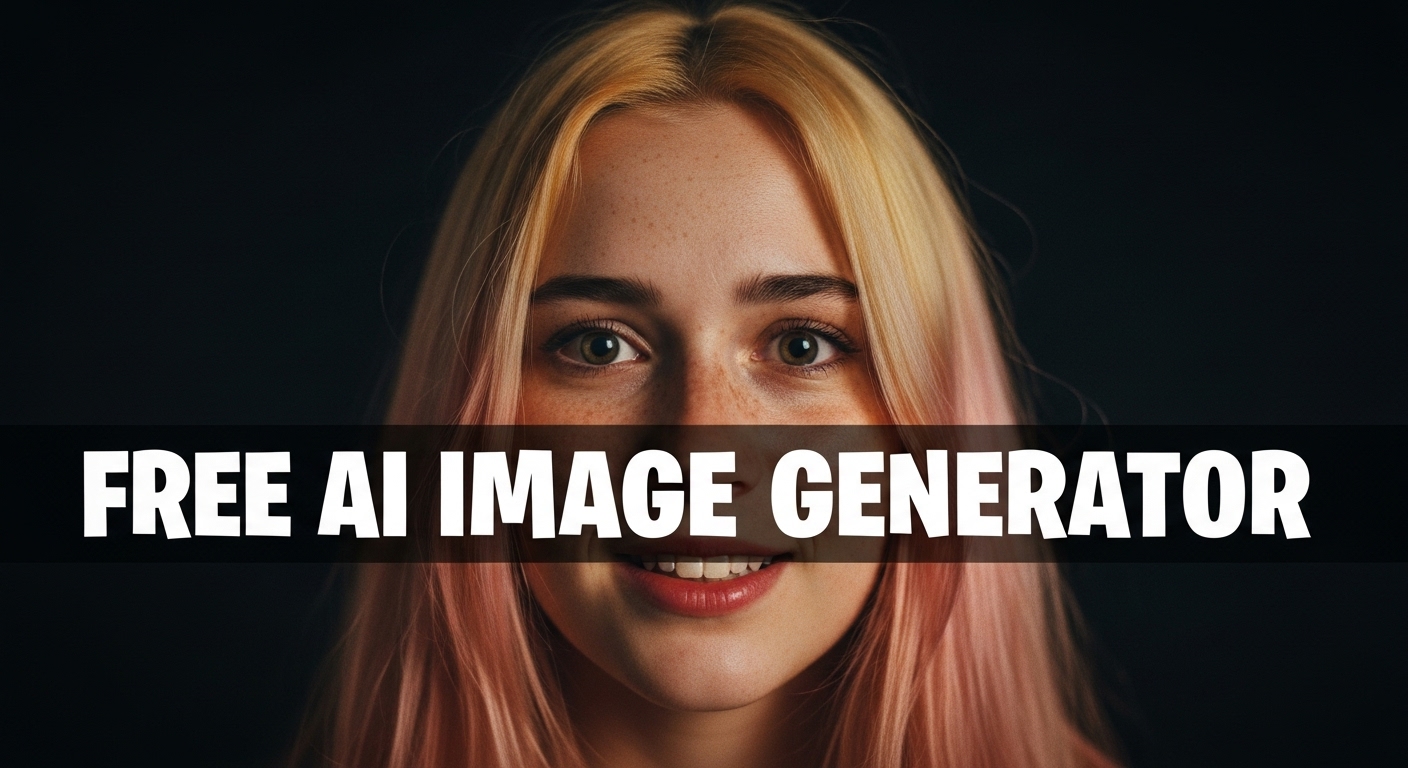Free OpenAI Prompt Generator AI
Generate powerful prompts for OpenAI models like ChatGPT, Codex, or Whisper — from your own idea or topic.
Generate OpenAI Prompt
Generate powerful prompts for OpenAI models like ChatGPT, Codex, or Whisper — from your own idea or topic.
Online Tool for Creating OpenAI Prompts
AIFreeforever's OpenAI prompt generator helps you create effective prompts for ChatGPT, GPT-4, and other OpenAI models. This tool transforms your ideas into well-structured prompts that get better results from AI models. You can customize the task type, tone, format, and target audience to match your specific needs.
The generator uses proven prompt engineering techniques to create prompts that work well with OpenAI models. Whether you need help with writing, coding, analysis, or creative projects, this tool helps you communicate clearly with AI systems. This AI prompt generator is completely free with no signup required.
How to Use the OpenAI Prompt Generator

1. Enter Your Prompt Topic
Describe your idea, task, or question that you want to turn into an optimized OpenAI prompt. Be specific about what you want to achieve.
2. Choose Task Type
Select Writing, Code Generation, Summarization, Explanation, Q&A, Analysis, Instructional, or define your own task type that matches your goal.
3. Set the Tone
Pick Friendly, Formal, Educational, Conversational, Neutral, Creative, or create your own tone that fits your project needs.
4. Select Format
Choose Paragraph, List, Step-by-Step, Table, JSON, Dialogue, or specify your own format for the AI response you want.
5. Choose Audience
Select Student, Developer, Child, Executive, General Reader, or define your own target audience to match the complexity level.
6. Generate Your Prompt
Click Generate to create your OpenAI prompt, then copy it directly into ChatGPT, GPT-4, or other OpenAI applications.
What is Prompt Engineering for OpenAI Models
Prompt engineering is the practice of creating effective instructions for AI models like ChatGPT and GPT-4. Good prompts help AI understand exactly what you want and provide better, more accurate responses. This involves using clear language, providing context, and structuring requests in ways that work well with AI systems.
• Clear Instructions
Good prompts use specific, clear language that tells the AI exactly what you want. Avoid vague requests and include important details about the task.
• Proper Context
Include background information and context that helps the AI understand your request better. This leads to more relevant and useful responses.
• Format Specification
Tell the AI how you want the response formatted, whether as a list, paragraph, table, or other structure that works for your needs.
• Audience Consideration
Specify who the response is for so the AI can adjust the complexity and language level appropriately for your target audience.
Benefits of Using Good OpenAI Prompts
Well-structured prompts help you get better results from OpenAI models like ChatGPT and GPT-4. Good prompt engineering saves time and improves the quality of AI responses for your projects.
• More Accurate Responses
Clear, well-structured prompts help AI models understand your request better and provide more accurate, relevant answers that match your needs.
• Consistent Results
Good prompts produce similar quality results each time you use them, making your workflow more predictable and reliable.
• Time Savings
Effective prompts reduce the need to ask follow-up questions or rephrase requests, helping you get the results you want faster.
• Better Task Performance
Well-designed prompts help AI models perform specific tasks more effectively, whether for writing, coding, analysis, or creative projects.
Who Can Use This OpenAI Prompt Generator
This tool works well for anyone who uses OpenAI models like ChatGPT or GPT-4 for work, study, or creative projects. Students, developers, writers, and business professionals can all benefit from creating better prompts for their AI interactions.
• Students and Researchers
Generate prompts for research, essay writing, learning assistance, and academic projects that require AI help with analysis or writing.
• Developers and Programmers
Create code generation prompts, debugging assistance, and technical documentation requests for programming projects and software development.
• Content Creators and Writers
Develop writing prompts for blogs, articles, social media content, and creative projects that need AI assistance with content creation.
• Business Professionals
Generate prompts for analysis, summaries, presentations, and strategic planning tasks that benefit from AI assistance and automation.
Common Types of OpenAI Prompts
Different types of prompts work better for different tasks. Understanding these categories helps you choose the right approach for your specific needs when working with OpenAI models.
• Writing and Content Creation Prompts
Create text content, stories, articles, or creative writing with focus on expression and engagement. These prompts help with blog posts, marketing copy, and creative projects.
• Code Generation and Programming Prompts
Generate code, scripts, or programming solutions with emphasis on functionality and best practices. Useful for software development and technical problem-solving.
• Analysis and Explanation Prompts
Analyze data, text, or situations to provide insights and evidence-based conclusions. Good for research, business analysis, and educational content.
• Question and Answer Prompts
Structure for comprehensive, accurate responses to questions and information requests. Helpful for customer service, education, and knowledge sharing.
Tips for Better OpenAI Prompt Results
Creating effective prompts takes practice, but following these guidelines helps you get better results from OpenAI models. Good prompts save time and produce more useful responses.
• Be Specific and Clear
Use clear, specific language that tells the AI exactly what you want. Avoid vague requests and include important details about the task and expected outcome.
• Provide Context and Background
Include relevant context and background information when needed. This helps the AI understand your request better and provide more accurate responses.
• Specify Format and Structure
Tell the AI how you want the response formatted, whether as a list, paragraph, table, or other structure that works for your needs.
• Test and Improve Your Prompts
Test prompts with different phrasings and approaches. Iterate and refine based on AI responses to find what works best for your specific use cases.
Frequently Asked Questions
How do I use these prompts with OpenAI models?
Simply copy the generated prompt and paste it into ChatGPT, GPT-4, or any OpenAI application. The prompts are ready to use and optimized for consistent results with OpenAI models.
Can I modify the generated prompts?
Yes, the prompts are designed to be flexible starting points. You can add your own specifications, examples, or constraints to better match your specific needs and requirements.
Do these prompts work with other AI models besides OpenAI?
While optimized for OpenAI models, these well-structured prompts generally work effectively with other AI language models like Claude, Gemini, and similar platforms.
What makes a good prompt for OpenAI models?
Good prompts are clear, specific, and include context. They specify the desired format, tone, and audience level. The best prompts tell the AI exactly what you want and how you want it presented.
Is this OpenAI prompt generator free to use?
Yes, this tool is completely free to use with no registration required. You can generate unlimited prompts for your OpenAI projects without any fees or limitations.
How can I improve my prompt engineering skills?
Practice with different prompt styles, test various approaches, and analyze the results. Start with this generator to learn good prompt structure, then experiment with your own variations.
Creating effective prompts is important for getting good results from OpenAI models like ChatGPT and GPT-4. This prompt generator helps you structure your requests properly and communicate clearly with AI systems. Whether you need help with writing, coding, or analysis, good prompts make AI tools more useful and productive.
Once you have your OpenAI prompts, you can enhance your AI workflow with our other tools. Try our AI general prompt generator for different AI models, or use our Python code generator for programming projects.
Create effective OpenAI prompts in seconds with our free AI tool!

